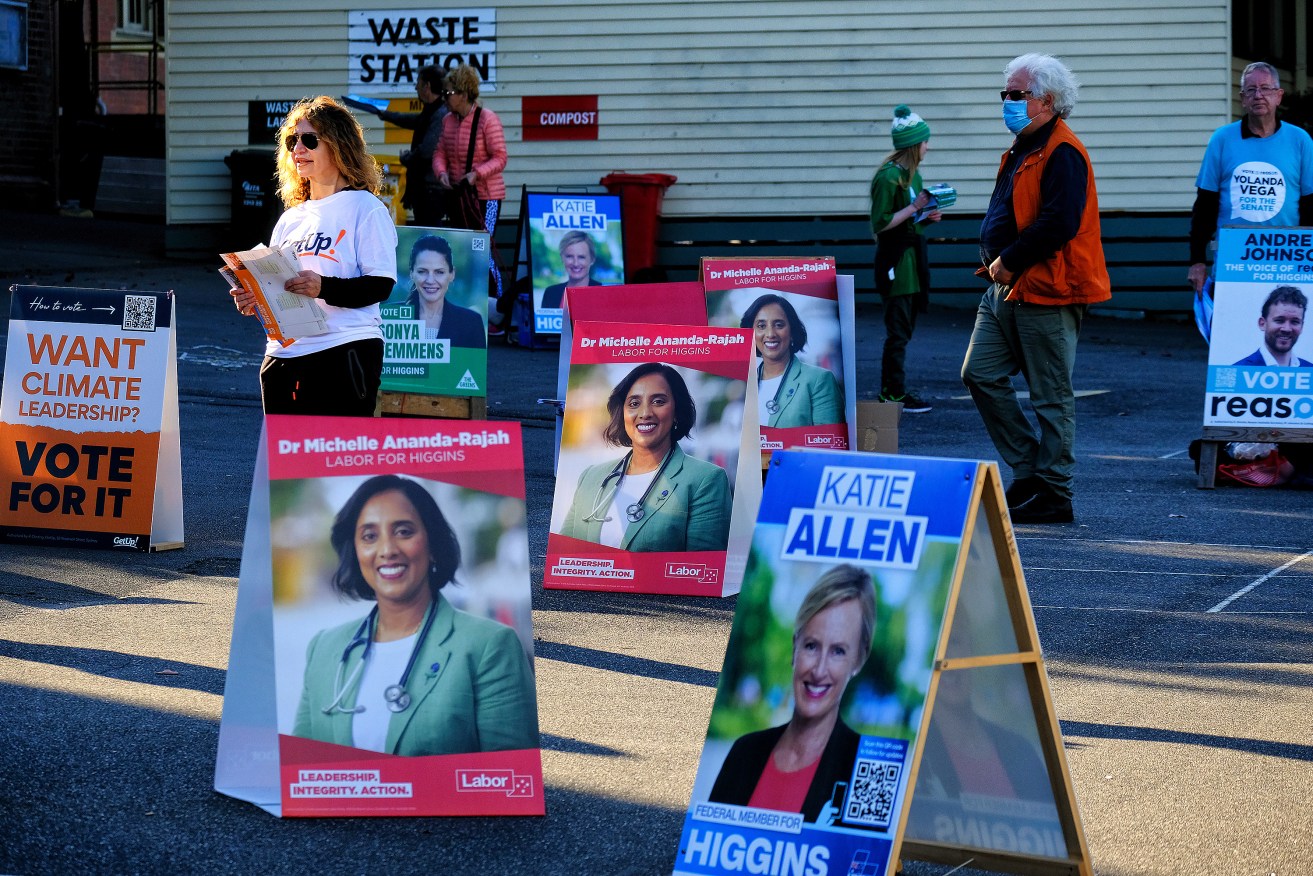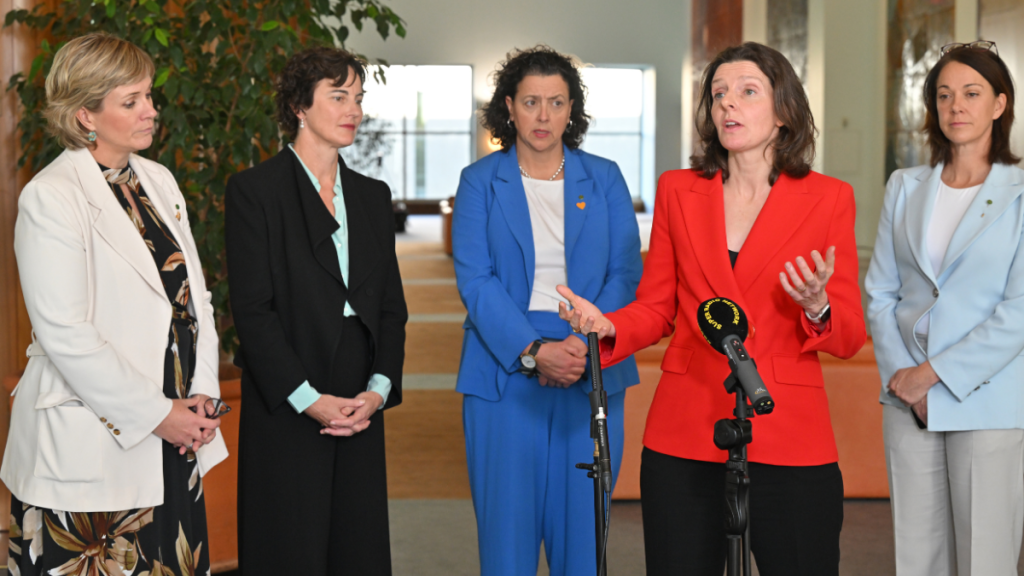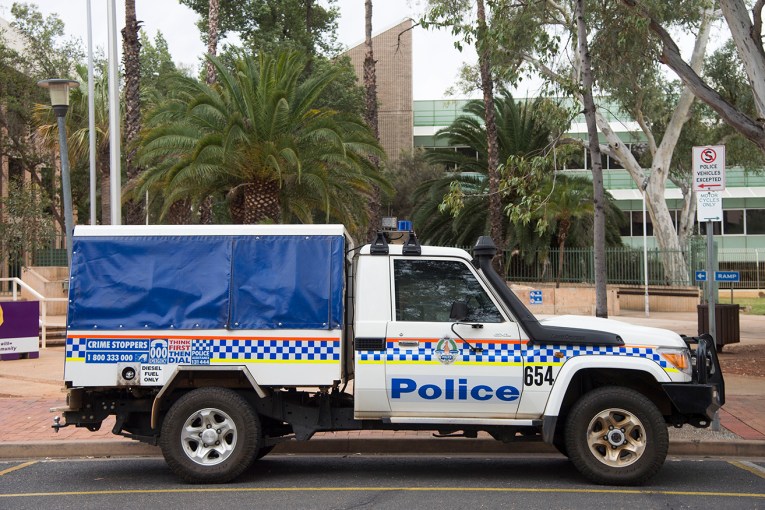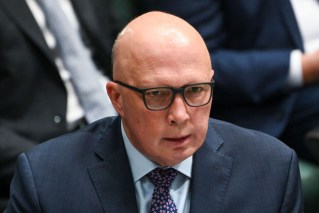Independents warn proposed election reforms could entrench major parties


Independents in parliament are warning that Labor's proposed changes could benefit the major parties. Photo: AAP
Teal independents have expressed serious concerns about the Albanese government’s upcoming election reform legislation, fearing it will fail to make politics more transparent and further entrench the institutional advantage of the two major parties.
Four independent MPs and an independent senator have told The New Daily that “long-overdue” election reform may instead be used to ensure independent candidates and minor parties cannot compete with incumbents at future elections.
The Albanese government will introduce legislation within weeks to cap donations to parties and candidates and limit the total amount spent in each electorate after the next federal election, according to The Sydney Morning Herald.
Serious concern
Zali Steggall, independent MP for Warringah, said any reform should include real-time transparency for donations and greater protection for voters from misleading advertising or content.
“I am concerned that the major parties could use their position to entrench the duopoly and make it difficult for any newcomers to compete or challenge in elections,” she said.
“I understand that there’s a consideration of increased public spending, where the AEC would pay back a greater amount than they currently do.”
The Australian Electoral Commission (AEC) distributes money to political candidates and parties if they receive more than four per cent of the first-preference votes.
Zoe Daniel, independent MP for Goldstein, said she is suspicious the major parties “are dressing this up as electoral reform when their real goal is to shore up their duopoly”.
“This smells like an attempt to lock out newcomers and tilt the playing field in favour of the major parties in contrast to the demonstrated wishes of voters at large,” she said.
“I also struggle to see how it could be enacted without a big increase in public funding, which cost taxpayers $75.88 million at the last election and is now calculated to give eligible candidates $3.293 for each vote.”

‘Teal’ independents swept into Parliament in 2022 after campaigning on climate action and integrity in politics. Photo: AAP
Overdue reform
The Albanese government has cited mining billionaire Clive Palmer pouring $117 million into his United Australia Party ahead of the 2022 election as a reason to limit donations.
David Pocock, independent Senator for the ACT, said he is concerned the “long overdue” reforms will “entrench major party advantages at the expense of independents and minor parties”.
“We need donations reform, starting with more transparency from real-time donations and a cap on large single players, like Clive Palmer, having an outsized impact on elections,” he said.
“We also desperately need truth in political advertising laws. Politicians shouldn’t be able to tell blatant lies to get elected.”
A parliamentary committee recommended significant reforms to Australia’s electoral system in 2023 and the ‘teal’ independents successfully ran on increased transparency and integrity in politics during the 2022 federal election.
Steggall said the timeline makes her question the “genuineness of their intentions to clean up our political campaigning process”.
“The question of how they deal with third parties is incredibly important because they range from Advance Australia to environmental groups like the WWF or the Conservation Society,” she said.
“We don’t want to end up with a system where, like in the US, we have third-party organisations weighing in on elections.”
Truth and transparency
Australia’s biggest donors in the 2022-23 financial year included Clive Palmer’s Mineralogy, environmental activists Climate 200 and consulting firms like EY, PwC, Deloitte and KPMG, according to the AEC.
But not every donation is tracked.
Kylea Tink, independent MP for North Sydney, said Australian political parties received $90 million in donations from unknown sources in the lead up to the 2022 federal election.
“It’s really important we have transparency around union donations, things like the Menzies Institute donations and Climate 200,” she said.
“Transparency is not a bad thing for anybody.”
Donations under the AEC’s disclosure threshold – $14,500 in 2021-22 – do not need to be declared, even if the donating party makes multiple contributions.
Allegra Spender, independent MP for Wentworth, said there is serious concern about the role of big money in politics.
“During the last election, around a quarter of political parties’ declared income was of unexplained origin,” she said.
“We need much better transparency on political donations and to get rid of the loopholes and carve-outs in our disclosure regime.”
Money from undeclared sources represented nearly a quarter of all donations in 2022-23, representing about $50 million in ‘dark money’.








